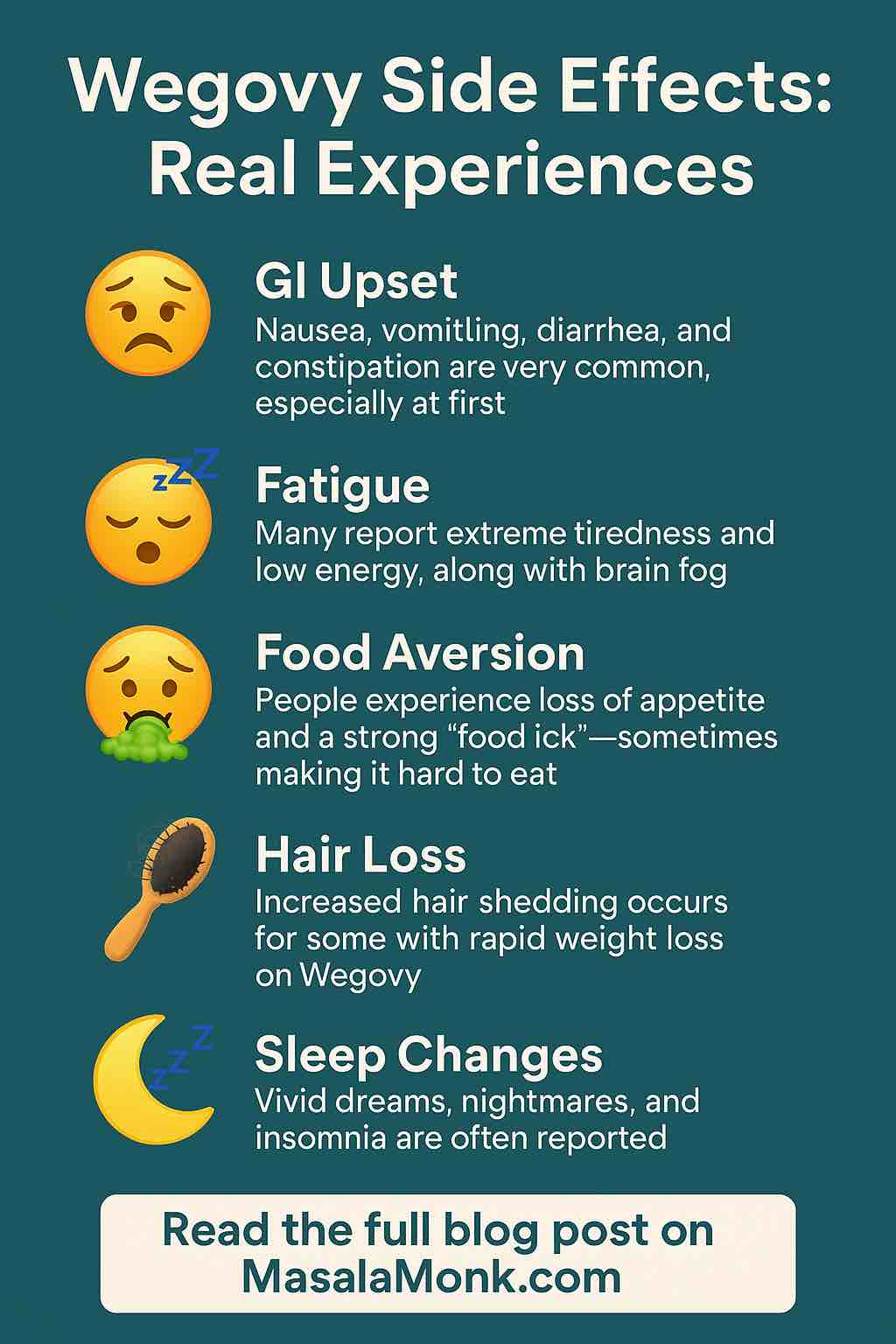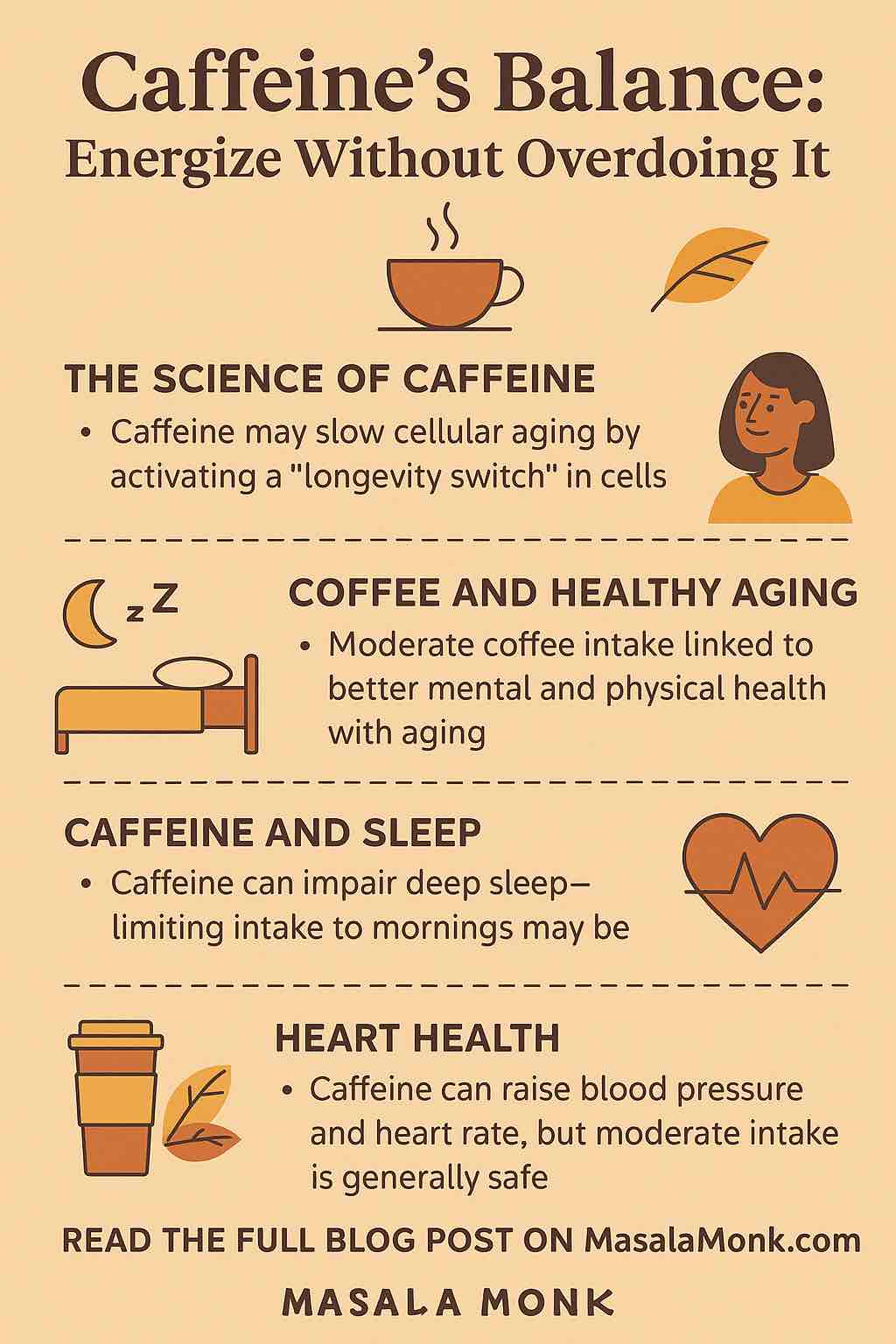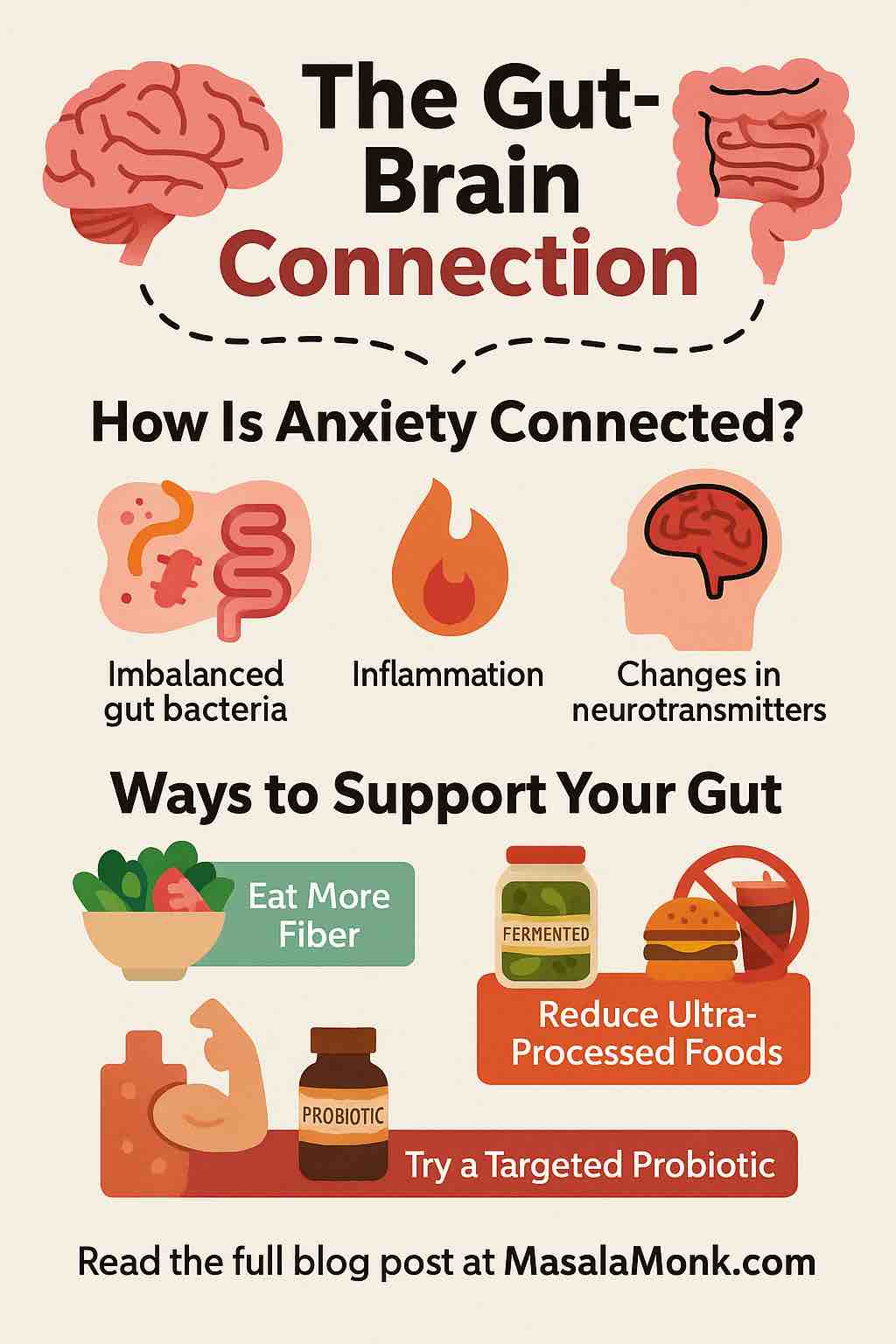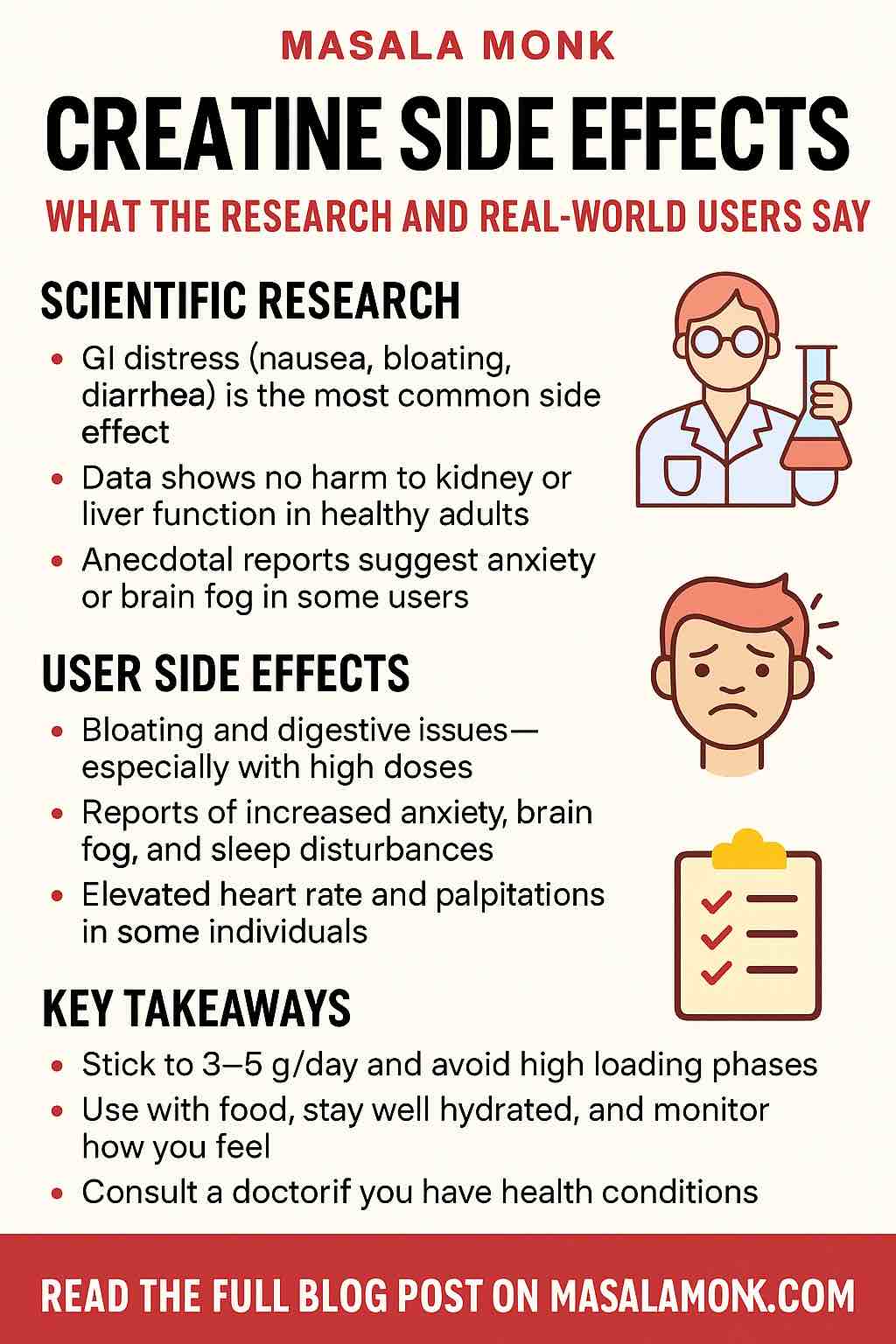
Wegovy (semaglutide) has changed the weight loss conversation worldwide. For many, it offers hope where diet and willpower alone have failed. But as anyone scrolling through Reddit or support groups quickly learns, the Wegovy journey can be bumpy. Side effects—ranging from mild annoyances to distressing surprises—are commonplace. If you’re about to start Wegovy or are somewhere along your journey, here’s what you truly need to know, in the words of those who’ve been there, plus hard-won tips from both medical experts and the user community.
What Most People Experience: The GI Rollercoaster
Ask anyone who’s taken Wegovy about side effects and you’ll hear about nausea, vomiting, diarrhea, and constipation—sometimes all at once, sometimes switching back and forth without warning. In fact, up to 70% of people experience some kind of digestive trouble, and it’s the most frequent reason people pause, lower their dose, or quit entirely.
One user put it bluntly:
“Wegovy is a miracle for weight loss, but my gut hates me right now. Week 3 and I feel like I’m either glued to the bathroom or terrified to leave the house.”
Another echoed the unpredictable nature:
“It started as mild nausea, then suddenly I was hit with the worst diarrhea of my life. Then I’d have days where I just couldn’t go at all. I learned to keep Imodium and stool softeners on hand.”
Many find that GI symptoms are worst right after injections (usually once a week), with symptoms peaking during dose increases. The first two months are often the hardest. For some, symptoms fade; for others, they linger or even recur months later.
Notable user themes:
- Food aversion: Some find that even thinking about food makes them queasy. “The ‘food ick’ was real for me. I’d open the fridge and gag. Lost 10 lbs in 3 weeks but it wasn’t fun.”
- Vomiting surprises: Several people describe sudden, “thick” vomit episodes with little warning—even after months of smooth sailing.
- Constipation frustration: Others say constipation is so severe it’s “like passing rocks.” Some have gone over a week without relief, requiring interventions like Miralax, prunes, or prescription meds.
Fatigue, Brain Fog, and the Unexpected Tiredness
Beyond GI drama, fatigue is another common thread, especially in the early weeks or after dose increases. Some users describe a “zombie” feeling, sleeping 10-12 hours and still waking up tired.
One Redditor wrote:
“After my second shot I slept all weekend. Just…exhausted. It’s like my body was busy adapting and I couldn’t do anything else.”
Others talk about brain fog—feeling scattered, forgetful, or struggling to concentrate. This sometimes fades after the first month, but for a minority, it can persist and requires adjusting routines to accommodate lower energy.
Practical user strategies:
- Plan demanding activities for times you’re most alert.
- Listen to your body—rest is part of the process.
- Check your hydration and nutrition (low blood sugar or dehydration can worsen tiredness).
Appetite Suppression: When “Food Noise” Goes Silent
One of Wegovy’s biggest draws is its ability to silence cravings—sometimes too well. People talk about going an entire day without realizing they haven’t eaten, or having to force down protein shakes because nothing sounds appealing.
“My hunger disappeared. I had to set alarms to remind myself to eat because I’d go 8 hours and not even think about food. Kind of amazing, but also weirdly unsettling.”
Some people find this liberating (“No more nightly kitchen raids!”), while others worry about under-eating and nutrient deficiencies. A few mention developing an almost fear of eating, associating meals with potential nausea.
Lesser-Known Side Effects and Surprises
Hair Loss
A growing number of users—especially women—report hair thinning after several months. This tends to occur in people losing weight rapidly, but some attribute it directly to Wegovy.
“Three months in, the weight was flying off, but so was my hair. My shower drain looked like a cat was shedding. It eventually slowed down, but it was scary.”
Medical experts believe this is often telogen effluvium, a temporary shedding triggered by rapid changes in weight, stress, or diet. It typically resolves within a few months, especially with good nutrition.
Mental Health and Mood Shifts
While some report improved mental clarity or reduced anxiety (possibly from breaking food-related cycles), others note increased irritability, anxiety, insomnia, and even depression:
“I felt more snappy and down after a month on Wegovy. I wasn’t expecting mental effects, but they were real.”
Some rare cases of mood changes or suicidal thoughts have been documented, prompting ongoing research and caution for those with a mental health history.
Sleep Changes
- Vivid dreams and even nightmares are reported, mostly during dose escalation or when feeling unwell.
- Some mention insomnia or disrupted sleep patterns, especially on injection days.
Vision Issues and Rare Risks
Emerging reports have highlighted cases of sudden vision changes, such as non-arteritic anterior ischemic optic neuropathy (NAION) and, less commonly, macular degeneration. These are rare but very serious.
“I had blurry vision after starting Wegovy, which eventually resolved. But after reading about the risks, I went to get my eyes checked—better safe than sorry.”
Muscle Loss Concerns
Rapid weight loss can mean losing muscle as well as fat. Recent studies show that people on semaglutide can lose a concerning amount of lean mass—especially older adults and those eating too little protein.
“After 4 months and 40 lbs lost, I noticed I felt weaker. My doctor had me increase protein and start lifting weights, which helped.”
Gallbladder and Pancreatitis
- Several users have reported gallstones, gallbladder attacks, or even pancreatitis.
- Symptoms include severe upper abdominal pain, especially if accompanied by vomiting or fever—these warrant immediate medical attention.
Dry Mouth, Taste Changes, and “Ozempic Mouth”
Persistent dry mouth, an altered or metallic taste, and mouth discomfort (“Ozempic mouth”) are increasingly common reports.
“I was constantly thirsty and my mouth felt like sandpaper. Chewing sugar-free gum helped a bit.”
Late-Onset and Long-Term Effects: Not Just an Early Hurdle
While many expect the first month to be the hardest, several users describe side effects re-emerging after months of stability.
“I was fine for nearly a year, then the nausea and vomiting returned out of nowhere. My doc said it can happen if you lose a lot of weight or change your dose.”
This late-onset phenomenon reminds users to remain vigilant, track symptoms, and never assume they’re “done” with side effects.
Positive Side Effects: Surprising Benefits
It’s not all negative. Some people notice unexpected improvements:
- Less joint pain (possibly from weight loss, but sometimes noted before major loss occurs)
- Improved mood, reduced food-related anxiety, and greater focus
- Better control over impulsive behaviors, including those unrelated to food
One user shared:
“My skin picking got better, and my ADHD symptoms actually improved. I wasn’t expecting that!”
When to Get Help: Red Flags You Shouldn’t Ignore
While most symptoms can be managed at home, some should trigger an immediate call to your doctor or a trip to urgent care:
- Severe or persistent vomiting/diarrhea (risk of dehydration)
- Severe abdominal pain, especially with fever or vomiting (possible pancreatitis/gallbladder attack)
- Sudden changes in vision
- Allergic reactions: swelling, trouble breathing, rash
- Serious mood changes, thoughts of self-harm or suicide
Most Common Side Effects: What to Expect
Gastrointestinal (GI) Upset: The #1 Complaint
- Nausea and Vomiting: Up to 44% of users experience nausea, sometimes leading to vomiting. This typically peaks after an injection and during dose escalations.
- Constipation: Very common. Some users say, “I didn’t go for a week.” Others battle alternating diarrhea and constipation.
- Diarrhea and Abdominal Cramps: For some, it’s diarrhea instead—sometimes severe enough to interfere with work or sleep.
- Heartburn, Bloating, and Burping: Not unusual, and sometimes persistent.
Reddit User:
“Started fine, but in week three, the nausea and vomiting hit hard. Some days I couldn’t keep food down, other days it was just a low-level queasiness.” (reddit.com)
Fatigue and Low Energy
- Many users describe overwhelming tiredness, especially during the first few weeks. This can come and go, sometimes lasting for months.
- Some also report dizziness, headaches, or difficulty concentrating.
Practical Tip:
Plan your most demanding tasks for times when you feel your best, and prioritize rest if you feel wiped out.
Appetite Suppression & “Food Apathy”
- This is the intended effect, but for some, it’s so strong they forget to eat or struggle to meet basic nutrition needs.
- “Food noise” (constant food thoughts) often vanishes—but so can interest in eating altogether.
Injection Site Issues
- Mild redness, irritation, or swelling at the injection site is common, but usually fades quickly.
Lesser-Known and Rare Risks
Hair Loss (Telogen Effluvium)
- A surprising number of users—especially women—report increased hair shedding after months of use. While often temporary, it can be distressing.
Mood and Mental Health Shifts
- Some users report increased anxiety, irritability, or even episodes of depression.
- Conversely, others notice reduced anxiety and improved focus.
Vision Issues
- Rare but serious: sudden changes in vision (including partial blindness) have been reported and are now acknowledged by regulatory agencies as possible, albeit very rare, risks.
Muscle Loss
- Recent research highlights significant muscle loss with rapid weight reduction—especially if protein intake is low or resistance exercise is lacking.
Pancreatitis and Gallbladder Problems
- Rare but very serious: severe abdominal pain, especially with vomiting or fever, may signal these complications. Immediate medical attention is required.
Dry Mouth and Taste Changes
- Increasingly reported: persistent dry mouth (“Ozempic mouth”) and sometimes metallic or altered taste.
User Voices: Real Stories from the Wegovy Community
A. Long-Term Surprises
“I was a year in, doing great—then suddenly the nausea came back. Dry heaving in the morning, unpredictable diarrhea. Had to rethink my meal timing and go back to basics.”
B. First-Dose Shocks
“Day one, I felt like I’d been hit by a truck. Fatigue, a weird dizzy fog, constipation for a week… but after a month, things got much easier.”
C. Sudden “Food Ick”
“Just looking at food made me queasy for weeks. Lost 10 pounds in the first month without really trying, but needed protein shakes to keep from feeling weak.”
D. Positive “Side Benefits”
“My anxiety’s been better, and my joint pain improved—wasn’t expecting that at all.”
E. Persistent Minor Annoyances
“Burping, heartburn, burning bladder feeling… small stuff, but it adds up when you’re dealing with it every day.”
How Real Users Cope: Practical, Battle-Tested Advice
Go Slow and Listen to Your Body
- Many users find that sticking to the slowest possible dose escalation dramatically reduces side effects.
- If side effects become unmanageable, don’t hesitate to ask your prescriber to pause or reduce the dose. Pushing through can backfire.
Dietary Hacks
- Eat small, bland meals—think crackers, rice, bananas, boiled chicken.
- Avoid greasy, spicy, or high-fiber foods on injection days if you’re prone to GI symptoms.
- Protein shakes, Greek yogurt, and eggs are popular among users struggling to eat enough.
“I kept a log of what made me feel sick and what I could tolerate. Plain toast saved me on bad days.”
Hydration Is Crucial
- Aim for at least 8 glasses of water per day, more if experiencing diarrhea or vomiting.
- Electrolyte solutions (like Pedialyte) can help if you’re losing fluids quickly.
Manage Constipation and Diarrhea
- For constipation: fiber supplements (as tolerated), stool softeners, and gentle laxatives.
- For diarrhea: Imodium (with your doctor’s approval), and a bland, binding diet.
Combatting Dry Mouth and Taste Changes
- Sugar-free gum, lozenges, and frequent sips of water.
- A humidifier at night can help with mouth dryness.
Protect Your Muscles
- Include resistance training (even light weights or bands) 2-3 times a week.
- Ensure adequate protein intake (at least 1.2–1.6 grams per kg of body weight daily).
- Don’t shy away from consulting a dietitian.
Track Symptoms and Patterns
- Many users keep journals noting side effects, food intake, and injection days. This can help identify triggers or trends and is invaluable when discussing issues with your doctor.
Mental Health Self-Care
- Reach out to friends, family, or support groups.
- Don’t dismiss changes in mood or mental health. Seek professional support if needed.
Tap Into Community Wisdom
Reddit’s r/WegovyWeightLoss and similar forums are goldmines for practical solutions, solidarity, and humor. You’re not alone, and someone has probably found a workaround for whatever you’re dealing with.
Living With Wegovy: The Honest Truth
Wegovy is not a magic pill. For most, it’s a tradeoff—a chance at significant weight loss, but often at the cost of temporary (or sometimes persistent) side effects. Some breeze through with minor issues. Others face tougher challenges, ranging from manageable to severe.
What sets successful users apart is not just luck, but preparation and adaptability:
- They start slow, adjust fast, and ask for help early.
- They’re not afraid to pause or step back if their body needs it.
- They invest in their nutrition, movement, and mental health as much as in the medication itself.
If you’re about to start Wegovy or are deep into the journey, know this: you’re not crazy, you’re not weak, and you’re definitely not alone. Real people all over the world are working through the same side effects, making adjustments, and finding ways to thrive.
Have a Wegovy Story?
What have you experienced on Wegovy? What’s helped, what hasn’t, and what do you wish you’d known sooner? Sharing stories not only helps others, it helps us all advocate for better care and more honest conversations about this powerful, complicated medication.
Disclaimer: This post is based on real-world reports and expert advice, but it is not a substitute for personalized medical care. Always consult your healthcare provider about medication questions and side effect management.
Wegovy Side Effects: Top 10 FAQs
1. What are the most common side effects of Wegovy?
The most common side effects are gastrointestinal—nausea, vomiting, diarrhea, constipation, and abdominal pain. Fatigue and headaches are also reported. Most symptoms are worst in the first 1–2 months or after dose increases, then often improve.
2. Are Wegovy side effects permanent?
Most side effects are temporary and lessen over time, especially GI symptoms. However, some users experience side effects that persist or reappear later, such as fatigue or GI issues after months of use.
3. What should I do if I get severe nausea or vomiting?
Stay hydrated and stick to bland foods. Talk to your provider about anti-nausea medications. If vomiting is severe or persistent, pause the next dose and consult your doctor right away.
4. Is hair loss normal with Wegovy?
Hair thinning (telogen effluvium) can occur, especially with rapid weight loss. It is typically temporary and can be minimized with good nutrition, stress management, and proper protein intake.
5. How can I prevent muscle loss while on Wegovy?
Prioritize protein intake (1.2–1.6g/kg of body weight) and incorporate resistance or strength training 2–3 times per week to help preserve muscle.
6. What are the rare but serious side effects I should watch for?
Serious risks include pancreatitis, gallbladder problems, vision changes, severe allergic reactions, and (rarely) mood changes or suicidal thoughts. Seek immediate medical help for severe abdominal pain, vision changes, or mental health crises.
7. Can Wegovy affect mental health?
Some users report mood swings, irritability, anxiety, or even depression, though others notice improvements. Be alert for mental health changes and reach out for professional support if needed.
8. What can help with dry mouth or taste changes?
Drink plenty of water, use sugar-free gum or lozenges, and consider a humidifier at night. Most taste and dry mouth issues are mild and manageable.
9. Is it okay to pause or reduce my dose if side effects are bad?
Yes, many users benefit from slowing down dose increases or even dropping back to a lower dose temporarily. Always coordinate changes with your healthcare provider.
10. Where can I find real support and advice from others using Wegovy?
Online communities like Reddit’s r/WegovyWeightLoss, Facebook groups, and patient forums are excellent places to share experiences, find advice, and get moral support from people on the same journey.



















